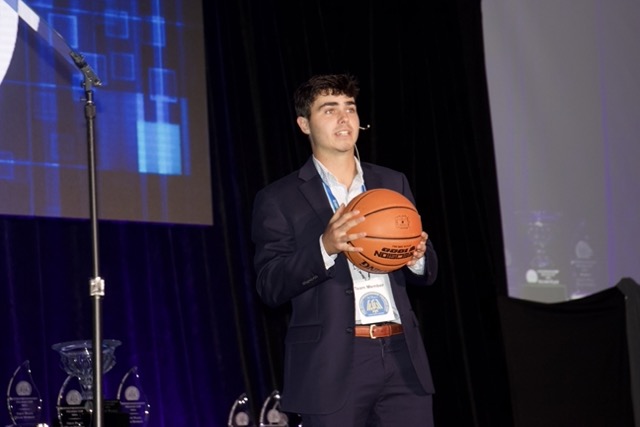Aritney Ross has watched her mother go through 10 surgeries in three years. Her mother’s doctor said people who have a transplant sometimes don’t survive and others have wasted away on dialysis.
She wasn’t there when her mother almost passed out in CVS from her blood pressure acting up. But she was determined to do what she could to help her mother, Barbara Ross, overcome her sickness.
Doctors put Barbara on dialysis three years ago because of her hypertension—a disorder that causes high blood pressure. Doctors could have easily detected Barbara’s hypertension had she gone to a doctor. But Barbara was busy. She had a family to care for. And she had a son who also needed a new kidney.
Aritney, a freshman biology major, wanted to stop the disorder from taking over Barbara’s life. Her mother had always done so much for her and it was time for her to give back. It was time for her to help her mother fight kidney failure.
“Finally I just told my mom that I would do it,” said Aritney. “Of course she said no at first, but I told her I wasn’t worried about it. I just wanted her to be okay. I needed her and she needed me.”
Aritney looked to be a perfect match to donate her kidney to her mother. She was willing to do whatever it took to ease her mother’s pain. And all the blood work was there.
So she set in her mind that she was going to give one of her vital organs to her mother, so she could live.
LET THE TESTS BEGIN
Workups, paperwork and blood work became a biweekly routine for Aritney. For three months, she would make the hour and a half drive to Willis-Knighton in Shreveport to face one of her worst fears: needles.
But that drive only reminded her of her drive from her family’s home in Arkansas to her high school in Bossier. The family had to move to Arkansas because it was the only place where her brother could have his kidney replacement surgery. Her brother has Alport’s disease—a rare condition that causes an eventual loss of kidney function.
Aritney would wait in the reception area of the doctor’s office only so she could be poked and prodded by an arsenal of long and short needles. The receptionist came out into the waiting area.
“Ross,” she said. “Aritney Ross.”
Aritney walked back into the doctor’s office and sat on the paper-laden seat while she waited for the nurses to come in and start drawing blood.
Singing “Twinkle Twinkle Little Star” was the only thing the doctors could do to calm her nerves. She would stop breathing otherwise. Sometimes Aritney would think of her dad.
Her father donated a kidney to her brother in November of 2010. He would always calm her down.
“I look up to him for it,” said Ross. “He was forty-six years old and was able to go back to the Navy after his surgery. He gave me hope that I would be okay and I would be able to stay as active as him.”
Barbara was torn. She didn’t want to accept that this was happening. She was afraid for her daughter. She was afraid it wouldn’t work. She was excited to have another chance at life and to be able to stay with her family.
A DEADLY CYCLE
Nursing professor Wendy Bailes has worked as a dialysis nurse and said hypertension is called “the silent killer.”
“You really don’t realize you have hypertension until you go in and get it checked,” Bailes said. “The continuous increase in pressure within your blood vessels leads to poor profusion. This leads to organs dying off. Our kidneys are very sensitive to that type of thing.”
High blood pressure comes about when the arteries and veins carrying the blood become constricted or blocked. This causes the force with which the blood is pushed through the body to become greater.
Hypertension can be brought about by genetics or a person’s diet among other factors.
It causes the heart to work harder, which damages the veins. And if the veins near the kidney are damaged, then it causes the kidney to fail to filter out waste fluid. This causes the heart to work even harder and creates a deadly cycle.
HEARTBREAK
Aritney was ready to give her mother her kidney. They’d gone through nearly every test imaginable. The surgery would be seven hours and was set to happen over winter break.
But it didn’t happen.
The last stage of testing failed. On Dec. 4, DNA cross matching proved that her mother’s body would have rejected her kidney. Aritney couldn’t believe it. She was devastated.
“Everything else was perfect,” she said. “When they told me I couldn’t give her a kidney, it broke my heart. I cried. I love my mother and she has given me everything. I just wanted all of her pain to go away.”
Barbara was torn again. She was sad, but also happy that her daughter didn’t have to go through any pain. Her daughter was healthy and that’s what mattered.
Since then, Barbara has gone to her boyfriend and high school best friend to get tested. She has also been on the donor list for two years.
The average wait time for a kidney donor to become available is three to five years. Until then, Barbara will simply have to live with a life of regular dialysis visits and the pain that comes with her disease.








